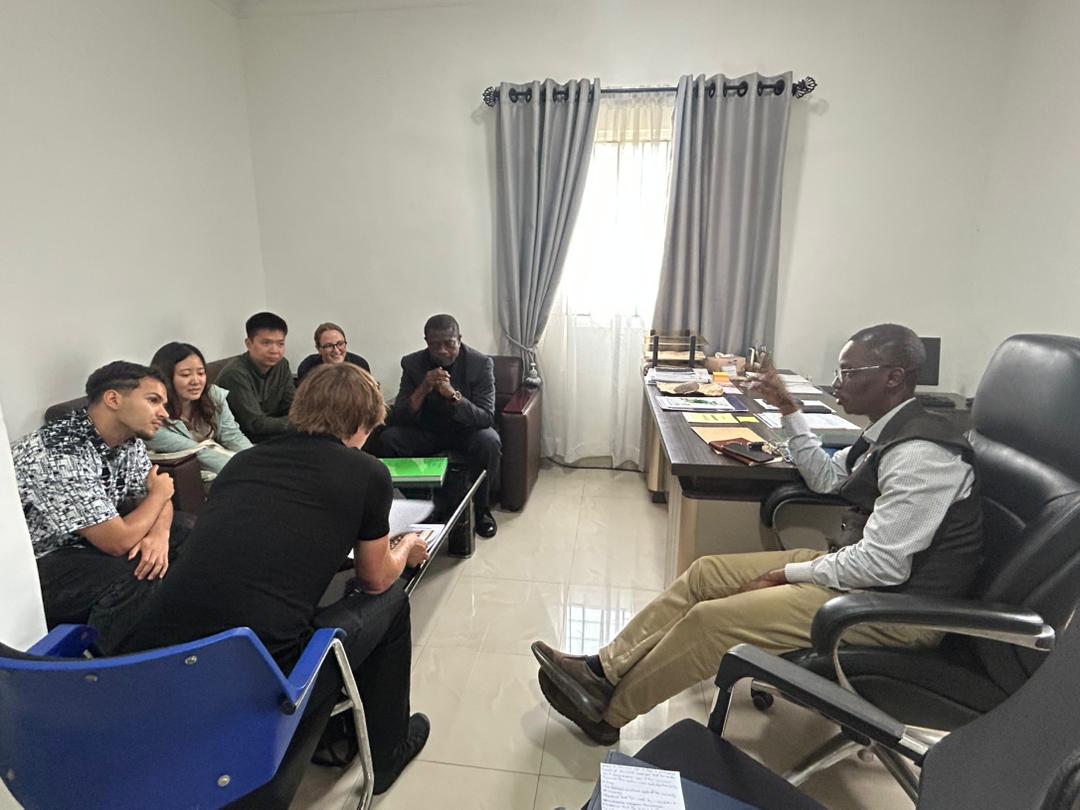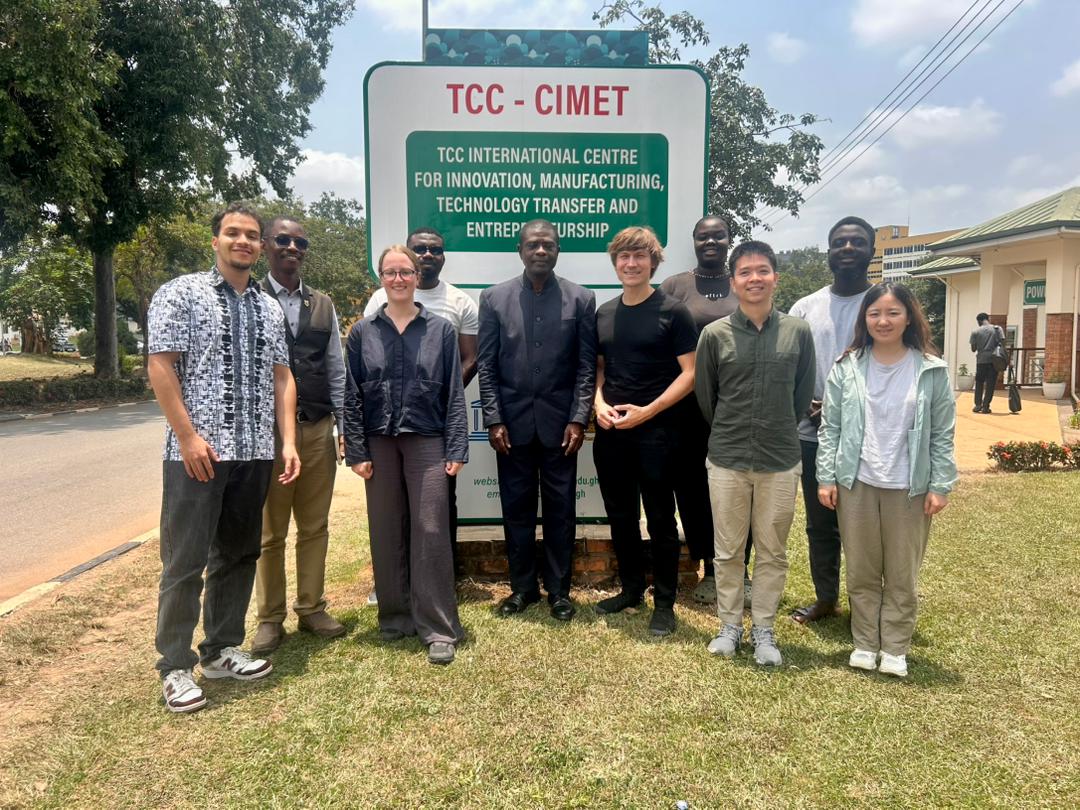The TCC International Centre for Innovation, Manufacturing, Entrepreneurship and Technology Transfer (TCC-CIMET) has welcomed partners from Germany’s Karlsruhe Institute of Technology (KIT) for the Reinterpreting Natural Building Materials (RENABUMA) workshop.
The workshop, running from Sept. 1 to 23, offers a hands-on platform where academia, industry and local communities collaborate to co-create sustainable solutions.
Prof. Moritz Dörstelmann, Professor of Digital Design and Fabrication at KIT’s Faculty of Architecture, said the project aims to build a long-term partnership with TCC-CIMET.
“It's about getting firsthand experience with the materials, testing various treatments, ways to go about it, to get it started. And it's a long-term end, yeah, so during my studies, a longer time ago, I was also involved in a project in South Africa, which was very shortsighted, yeah, it was just going there, building something, leaving again, no long-term impact, no long-term partnership,” he said. “It was a good experience as a student, but I think in terms of what we expect as impact from our research, we see that we want to have like a longer period and that it needs to happen here in the lab with the local industry here,” he added.
He said the team also intends to develop digital starter kits for small factories.
“So, our proposal was also to maybe develop like a digital start to kit for micro factories, so people can adopt the technologies and start up their own small, distributed fabrication centers. “Our goal is to remain engaged for as long as there is meaningful transfer and uptake of our efforts.
This ensures a long-lasting impact that aligns with our mission, makes our time worthwhile, and brings genuine satisfaction. We want to see that our involvement leads to tangible, meaningful change,” he said.
The RENABUMA project, a collaboration between KIT and TCC-CIMET at Kwame Nkrumah University of Science and Technology (KNUST), seeks to design and prototype affordable, low-carbon housing systems tailored to Ghana’s urban context by combining renewable local materials with digital construction technologies.
It focuses on bio-based resources and digital fabrication to advance several UN Sustainable Development Goals, including affordable energy, sustainable cities and climate action.

Prof. Francis Davis, Director General of TCC-CIMET, said the partnership highlights the importance of integrating digital innovation with indigenous knowledge.
“Over the years, our indigenous technologies have relied on cane and other local materials to craft a wide range of products like; center tables, chairs, living room sets, desks, and more. These creations are made entirely by hand, using manual techniques passed down through generations.
“Many of these designs feature simple cross-weaving patterns. When I saw your product, I immediately connected it with the expertise we have here and began to synthesize the two. Our goal is to modernize these indigenous technologies by integrating them with digital tools. With the advancements in digital systems, we can elevate our weaving techniques moving beyond basic patterns to more complex, aesthetically refined shapes. This transformation will reveal the true beauty and potential of our local materials in building structures, systems, and artistic forms,” he said.
Dr. Alexander Boakye Marful, project lead, said the initiative reflects both the Centre’s and KNUST’s mission to preserve indigenous technology while driving innovation.
“Just like you we got permission from the University to make a demonstration building with the materials that we have and for me this project reflects the center’s and the university’s broader vision of shaping a future where tradition and modern advancement move hand in hand,” he said.
The project is led by TCC-CIMET and KIT, with support from KNUST’s Centre for Settlement Studies, Department of Architecture, Department of Construction Technology and Management, College of Engineering and College of Science, along with the International Bamboo and Rattan Organization.

















